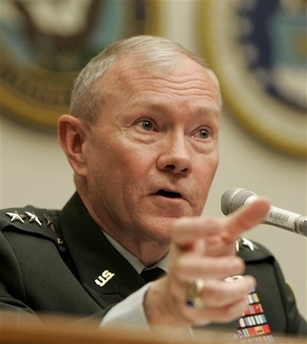Dempsey to become US Central Command chief
(Agencies)
Updated: 2008-03-28 23:34
Updated: 2008-03-28 23:34
WASHINGTON -- One of the Army's most Iraq-savvy generals is taking charge, at least temporarily, of arguably the most important command in the US military, with responsibility for the wars in Iraq and Afghanistan.
 Army Lt. Gen. Martin Dempsey, Commander of the Multi-National Security Transition Command in Iraq, testifies on Capitol Hill in Washington in this June 12, 2007 file photo. [Agencies] |
In a ceremony Friday at MacDill Air Force Base, Fla., Lt. Gen. Martin Dempsey is to assume command of US Central Command from Navy Adm. William J. Fallon, who announced unexpectedly on March 11 that he was quitting. Fallon cited press reports that he was at odds with President Bush over Iran policy.
Defense Secretary Robert Gates, who has denied that Fallon was out of step on Iran, and Navy Adm. Michael Mullen, chairman of the Joint Chiefs of Staff, are scheduled to attend the ceremony.
Dempsey, whose field experience in the early stages of his 34-year Army career was largely in Europe, has been deputy commander at Central Command since August 2007. He will serve as the acting commander until Bush chooses a permanent replacement and gets that person confirmed by the Senate.
Fallon was the first Navy officer to head Central Command since it was created in 1983. It typically has been commanded by an Army general — John Abizaid prior to Fallon, and Tommy Franks before Abizaid.
Dempsey takes charge at a particularly sensitive time, not only because of heightened concern about relations with Iran and the uncertain outlook for the wars in Iraq and Afghanistan, but also because of the approach of the November elections and the prospect of policy shifts by a new president.
One of Fallon's final acts was to advise Bush and Gates on how to proceed in Iraq after July, when the last of the troop reinforcements that Bush ordered in 2007 are to have returned home. At points during his 13 months in charge at Central Command, Fallon was perceived as being at odds with Army Gen. David Petraeus, the top US commander in Iraq, on how soon to end the troop surge.
|
||
|
||
|
|
|
|

